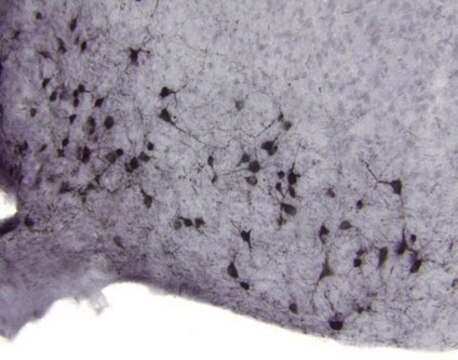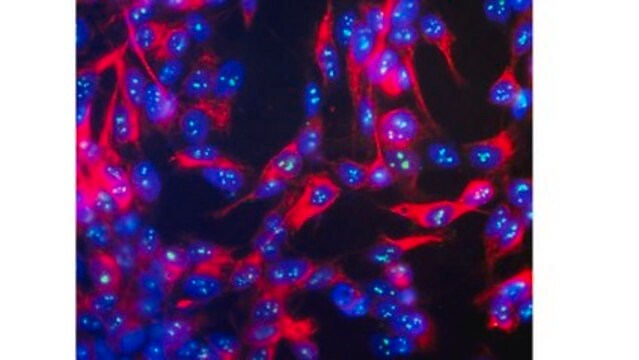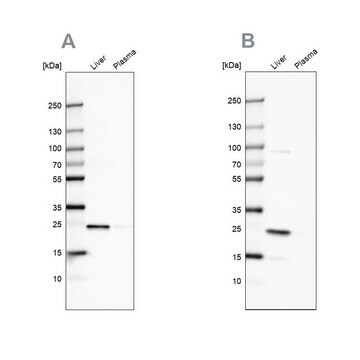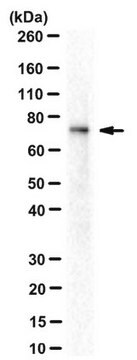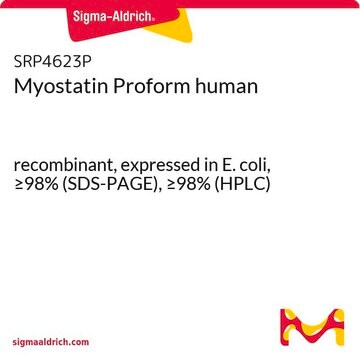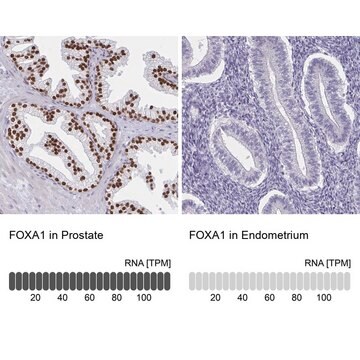B0555
Anti-Vascular Endothelial Growth Factor Receptor-2 (KDR)−Biotin Conjugate antibody, Mouse monoclonal
clone 260.4, KDR-2, purified from hybridoma cell culture
Sinônimo(s):
Monoclonal Anti-Vascular Endothelial Growth Factor Receptor-2 antibody produced in mouse, Anti-KDR, Anti-VEGFR-2
About This Item
Produtos recomendados
fonte biológica
mouse
Nível de qualidade
conjugado
biotin conjugate
forma do anticorpo
purified from hybridoma cell culture
tipo de produto de anticorpo
primary antibodies
clone
260.4, KDR-2, monoclonal
Formulário
buffered aqueous solution
reatividade de espécies
human
técnica(s)
western blot: 1:1,000 using insect cell culture supernatant expressing human extracellular recombinant VEGF R
Isotipo
IgG1
nº de adesão UniProt
Condições de expedição
dry ice
temperatura de armazenamento
−20°C
modificação pós-traducional do alvo
unmodified
Informações sobre genes
human ... KDR(3791)
Procurando produtos similares? Visita Guia de comparação de produtos
Categorias relacionadas
Descrição geral
Especificidade
Imunogênio
Aplicação
- enzyme linked immunosorbent assay (ELISA)
- immunoblotting
- flow cytometry
- immunohistochemistry
- immunohistochemistry
Ações bioquímicas/fisiológicas
Descrição-alvo
forma física
Exoneração de responsabilidade
Não está encontrando o produto certo?
Experimente o nosso Ferramenta de seleção de produtos.
Código de classe de armazenamento
12 - Non Combustible Liquids
Classe de risco de água (WGK)
nwg
Ponto de fulgor (°F)
Not applicable
Ponto de fulgor (°C)
Not applicable
Escolha uma das versões mais recentes:
Já possui este produto?
Encontre a documentação dos produtos que você adquiriu recentemente na biblioteca de documentos.
Nossa equipe de cientistas tem experiência em todas as áreas de pesquisa, incluindo Life Sciences, ciência de materiais, síntese química, cromatografia, química analítica e muitas outras.
Entre em contato com a assistência técnica